This March is Women’s History Month, and how could I ignore it? I love writing about women in history. Scroll down for a list of female firsts, including several surprises.
Do you know…
who was the first woman to rule a country?
who was the first female author?
what’s the oldest music we have composed by a woman?
Let’s start at the top, the pinnacle of political power.
First female ruler in recorded history
Not Elizabeth I or Egypt’s Hatshepsut. Around 2400 BC, a woman named Kug-Bau (or Kubaba) ruled in Sumer. She was from Kish, an ancient city near Babylon, in modern-day Iraq. The Sumerian King List names her as a king, not a queen. So she wasn’t just a king’s wife or a power behind the throne. The ancient list only tells us she was ‘the woman tavern-keeper who made firm the foundations of Kish.’ Beer was big business in Sumer, sometimes run by the nobility. And somehow, like the bubbles, Kug-Bau rose to the top.
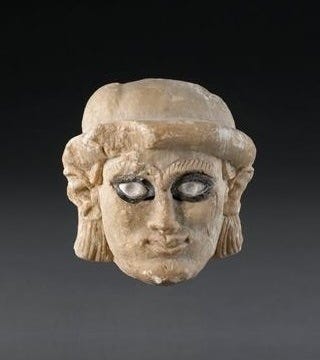
First woman elected to rule
I thought this might be Indira Gandhi in India. But next door in Sri Lanka, Sirimavo Bandaranaike was elected Prime Minister a few years earlier, in 1960. Her husband was the previous Prime Minister — when he was assassinated, she stepped up to lead his party. She actually held the position of Prime Minister three times, before finally retiring in 1990.
First woman to drive around the world
Speaking of women who’ve gone a long way… that would be Aloha Wanderwell. Yes, really— I love her name! It was made up for publicity purposes, but still.
In 1922, a sixteen-year-old girl, a convent-educated Canadian ‘tomboy’, read an ad in the Paris Herald:
Brains, Beauty & Breeches - World Tour Offer for Lucky Young Woman… Wanted to join an expedition… Asia… Africa…
She was interviewed by ‘Captain Walter Wanderwell’ (the stage name for a Polish adventurer). Before long she was off around the world. The Wanderwell expedition drove through Africa, Europe, Asia, and America. Aloha even made it to Australia, after the mysterious murder of the Captain, in the 1940s. (You can read more of her adventures on this website.)
First recorded scientific discovery by a woman
This record is a tie between two women. In the Han Dynasty, sometime in the first century BC, there was a female Chinese alchemist known only as Fang. She was credited with turning mercury into silver. What she probably did, in modern terms, was use mercury to extract silver from ore.
At about the same time, in the first or second century BC, a Greek astronomer called Aglaonice was accused of sorcery for making the moon disappear. The ancient historian Plutarch argued she successfully predicted a lunar eclipse.
First female IT expert
In 1815, Ada Lovelace was born the daughter of scandalously famous poet Lord Byron. Ada’s mother didn’t want her to develop her father’s ‘insanity’, so she encouraged Ada’s interest in logic and mathematics.
At the age of 18 Ada began to work with Charles Babbage on his proposed ‘analytical engine’. In 1843 she published a set of notes explaining the machine. She described an algorithm by which the machine could calculate a specific sequence of numbers (Bernoulli numbers). This algorithm is thought to be the first ever computer program. It’s debated how much was her work and how much Babbage’s, but Ada Lovelace wrote the algorithm up and had it published at least. She also saw the potential for such ‘engines’ to be used for more than numbers. And here I am, writing her up on my laptop centuries later, proving her right.
First woman awarded a PhD
Elena Lucrezia Cornaro Piscopia (1646-1684) was the illegitimate, and highly intelligent, daughter of an Italian nobleman. She mastered a list of languages — Greek, Latin, French, Spanish and Hebrew. She also read mathematics, astronomy, philosophy, music and theology. One of her tutors asked the University of Padua to grant her a degree in theology. The Bishop of Padua refused, because she was a woman. Instead, he allowed her to pursue a philosophy degree. In 1678, before a huge audience in the Padua Cathedral, she explained, in Latin, two random passages from the Greek philosopher Aristotle. Having passed that test, she was then proclaimed the first woman Doctor in Philosophy.
First female composer
Kassia (or Cassia, or Kassiani) was the first woman to compose music which is still performed. She lived in Constantinople, 810-867 AD.
As a young woman, she was in the line-up from which the Emperor Theophilos picked a bride. The story goes that he was attracted to Kassia’s good looks, and approached her with the golden apple — the Byzantine equivalent of the Bachelor rose. But before giving over the apple, he said to her, ‘Through a woman came the baser things,’ referring to Eve in the Bible.
That is one of the worst pick-up lines ever — it’s more of a put-down. So Kassia then replied, ‘And through a woman came the better things,’ a reference to Mary being the mother of Christ. Zing. Get your theology right, Theophilos.
He chose another woman as Empress, which was probably no great loss for Kassia. Kassia became a poet, composer, and abbess of a monastery. One of her hymns is still performed in Orthodox Easter services. Here’s this sombre, haunting piece of music sung in English:
First woman military commander
[Warning: skip this one if you prefer not to read about violence]
Back in the thirteenth century BC, Lady Fu Hao, meaning ‘the good lady’, was wife to a powerful Chinese king. The king made Lady Fu Hao second in command and she led thousands of troops into battle. She also led religious sacrifices and gave birth to several children.
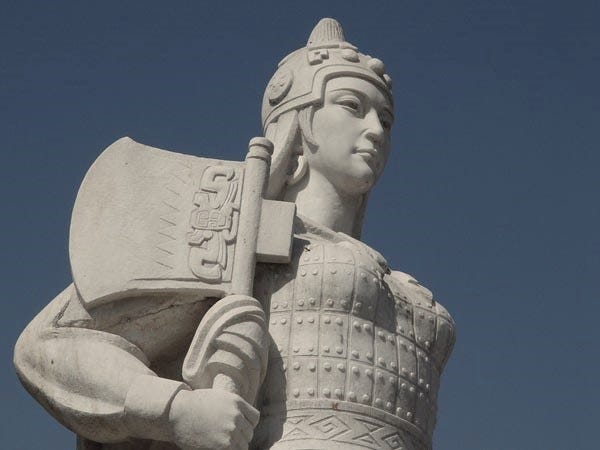
Eventually, she was buried with six of her dogs, 16 servants, and 130 weapons. Inscriptions tell us she sacrificed captured enemies to her ancestors, by beheading and boiling them. She was not a good woman to be on the wrong side of.
First female author
Enheduanna was a princess, priestess and poet (around 2285-2250 BC, a couple of centuries after Kug-Bau). She was the daughter of Sargon the Great, who united rival Sumerian kingdoms into an empire. She was also sister to two more kings, who both died in palace conspiracies. One of her poems is set during a rebellion, when she seems to have been under threat herself:
Daylight… lit up something vile beside me
Shade… shrouded me in swirling dust.
A slobbered hand was laid across my honeyed mouth
…Am I to die for my sacral song?
She survived, to finish and perform the poem.
It was a sweet moment for her, she was arrayed in her finest…
She was lovely as a moonbeam streaming down.1

First woman to write a book in English
This is my favourite female first, since I follow in her footsteps.
Long before the wonderful female novelists of the nineteenth century, Julian of Norwich (1343-1416 approximately) wrote Revelations of Divine Love. The book is part memoir and part devotional. Unlike most of the women in this newsletter Julian wasn’t of noble birth, and so she didn’t know the Greek and Latin generally used in books of her day. She said of herself:
I am a woman, ignorant and frail… Just because I am a woman, must I therefore believe that I must not tell you about the goodness of God?
It wasn’t false humility to say she was ‘frail’. She lived through the trauma of the Black Death as a child. At the age of 30, she nearly died of an illness. But as she was receiving the last rites, she had a series of visions. She recovered, and her visions became the basis for her book.
In one vision she asks Jesus why suffering came into the world. A perennial question, very pressing in her harsh, pre-modern world. The answer she records doesn’t go into the why, so much as ‘comforteth readily and sweetly’, to use her words. It’s probably her most famous line:
It is sooth [true] that sin is the cause of all this pain; but all shall be well, and all shall be well, and all manner of thing shall be well.
A lyrical statement of a profound faith that holds both grief and optimism at once.
Second thoughts
They’re pretty impressive, this line-up of women. I admire them, but they’re daunting. I, for one, am unlikely to achieve anything like their pioneering status. But life isn’t all about putting yourself first. Julian of Norwich would agree with that, though maybe not the others!
So here’s to all the women who put themselves second — after their kids, their colleagues, their clients, and their communities. Where would we be without their unrecorded stories? Or maybe I could say, without our unrecorded stories.
A question for you: what woman/women in history do you admire? The comments function doesn’t always cooperate, but give it a whirl if you’ve got time.
Or reply to this email. I love hearing back. Believe it or not, it helps with writing, to know who my audience is and what touches a chord :)
Blessings and best wishes, from Alison L.
Translation of ‘Exaltation of Innana’ excerpted from Prof Benjamin R Foster ‘The First Author’.

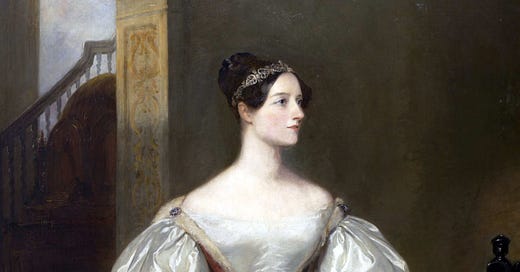

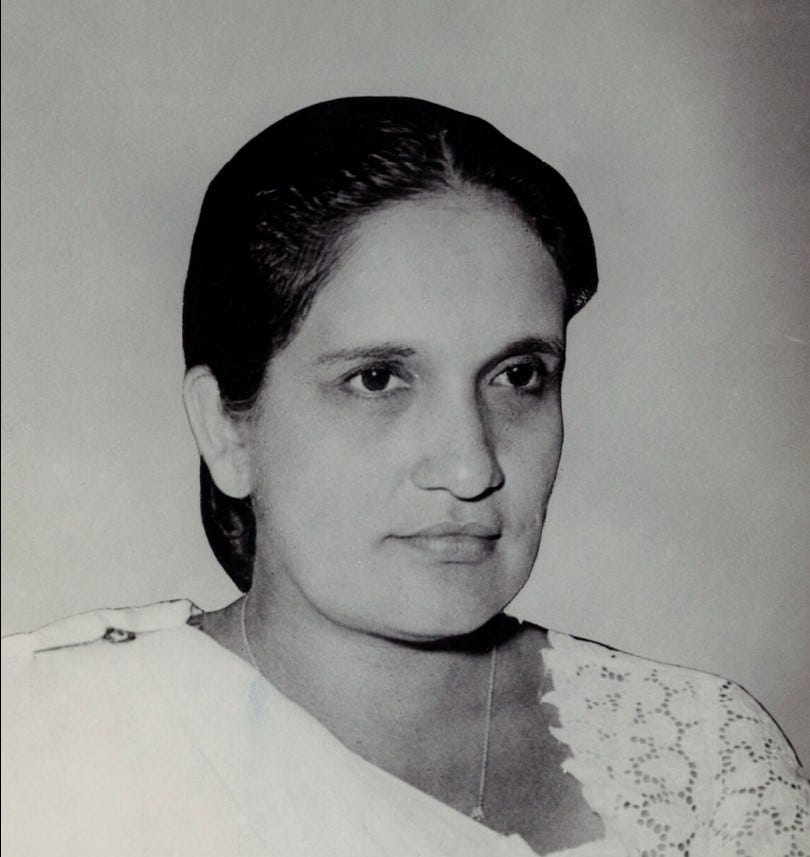
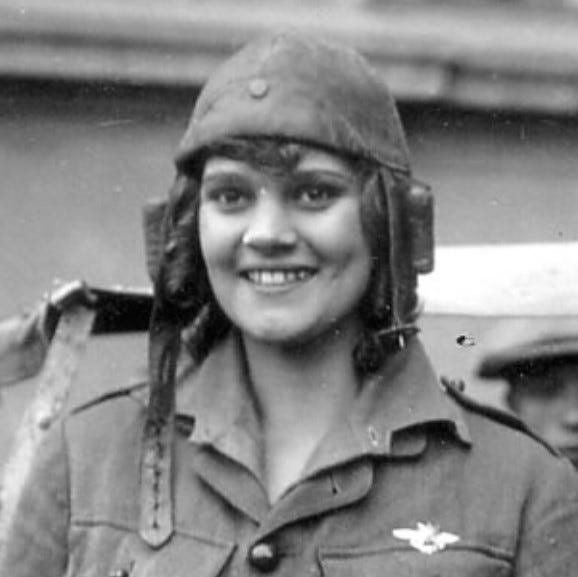

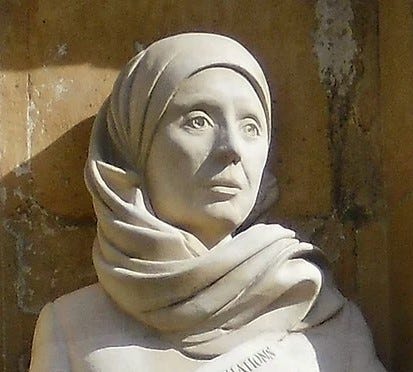
Loved reading this! Always valuable to remind ourselves 'all shall be well'!